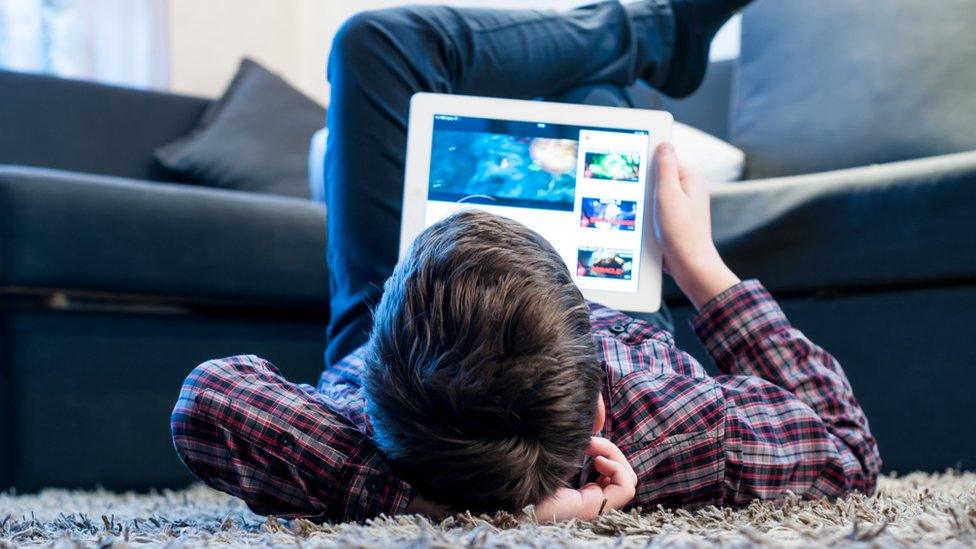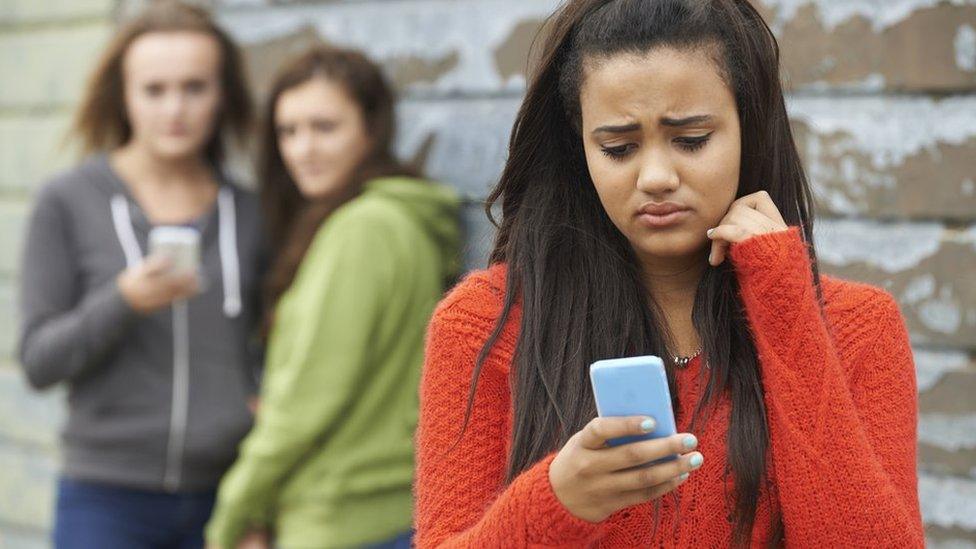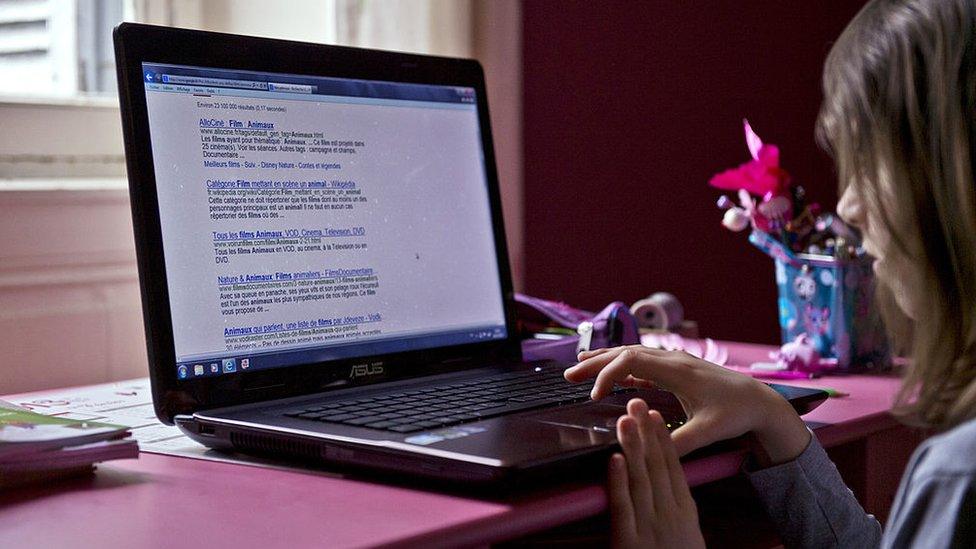Limiting time online 'won't protect children'
- Published
- comments

Limiting children's use of the internet will not protect them against the ills of social media, researchers say.
UK teenagers have some of the highest rates of internet use in the developed world - something that has a strong link to lower levels of well-being.
The Education Policy Institute study said restricting usage can prevent children gaining the digital skills and emotional resilience to keep them safe.
The government said it was vital to help children deal with online risks.
The report, written by the EPI's Director of Mental Health, Emily Frith, said restricting a child's use of the internet reduces the chances of children meeting difficulties online, but does not give them the skills to deal with problems they may run into at a later date.
"Restriction was also linked to the young person having a lower level of digital skills," it said.
"The research highlighted in this report indicates that restricting a young person's access to the internet could inhibit the development of the skills needed to handle online risk."
All evening online
However, according to EPI's round-up of research, more than one-third of the UK's 15-year-olds are classed as "extreme internet users".
This is defined, by a study from the international think tank OECD, as someone who uses the internet for the equivalent of their whole evening online - more than six hours outside school on a typical weekend day.
This would include time spent on homework, watching television online as well as time spent on social networks and playing online games. It is higher than the EU average.
An Office of National Statistics study quoted in the research suggests that more than half of 10 to 15-year-olds (56%) spend three hours or more on social media on a normal school day.
However, a third of UK children of the same age spent no time on social media during a school day, according to the study from 2013-14.
The report said concerns were frequently raised about the potential effect on young people spending a great deal of time online.
And according to research from Ofcom in 2016, quoted in the study, it led to nearly eight in 10 (78%) young people (aged 16 to 24) being told off for doing this.
Seven out of 10 said they had missed out on sleep because of their online habits and 60% said they had neglected school work as a result.
'Anxious offline'
And 59% of those questioned by Ofcom said they felt they spent too much time on the internet, with a quarter saying they felt nervous or anxious when offline.
The EPI research highlighted that those spending large amounts of time on social networking sites were more likely to have symptoms of mental ill health, and that excessive internet use has been linked with depression.
However, it stresses, it is not clear whether these symptoms are caused by the high internet/social media use or the other way round.
Child Sexual Exploitation lead explains why parents need to be more intrusive online.
Ms Frith said: "We are not saying there shouldn't be any restrictions, that's up to the individual parents.
"What we do need to do is ensure young people build up their digital skills, such as blocking someone who may be causing you distress or looking after your privacy settings.
"And then there's the whole emotional side," she added.
A government spokesperson said the internet had given young people wider opportunities to increase their knowledge, but helping them to deal with the risks they face online is vital.
"That's why we are increasing the focus on helping children to become resilient, confident adults who can go as far as their talents will take them.
"Cyber bullying and staying safe online are key parts of Relationships and Sex Education, which we are making mandatory. We are also helping schools to spot mental health problems and respond in the right way by offering mental health first aid training for a member of staff in every secondary school."
Kevin Courtney, general secretary of the National Union of Teachers, said said industry, schools and families must all rise to the challenge of social media.
"What will jump out to parents is the link between excessive social media use and a greater chance of mental health issues," he said.
"Looking at ways to make children resilient, we need industry to behave responsibly, but we also must empower parents about the best ways to safeguard and support their children online."
- Published27 April 2017

- Published5 January 2017
